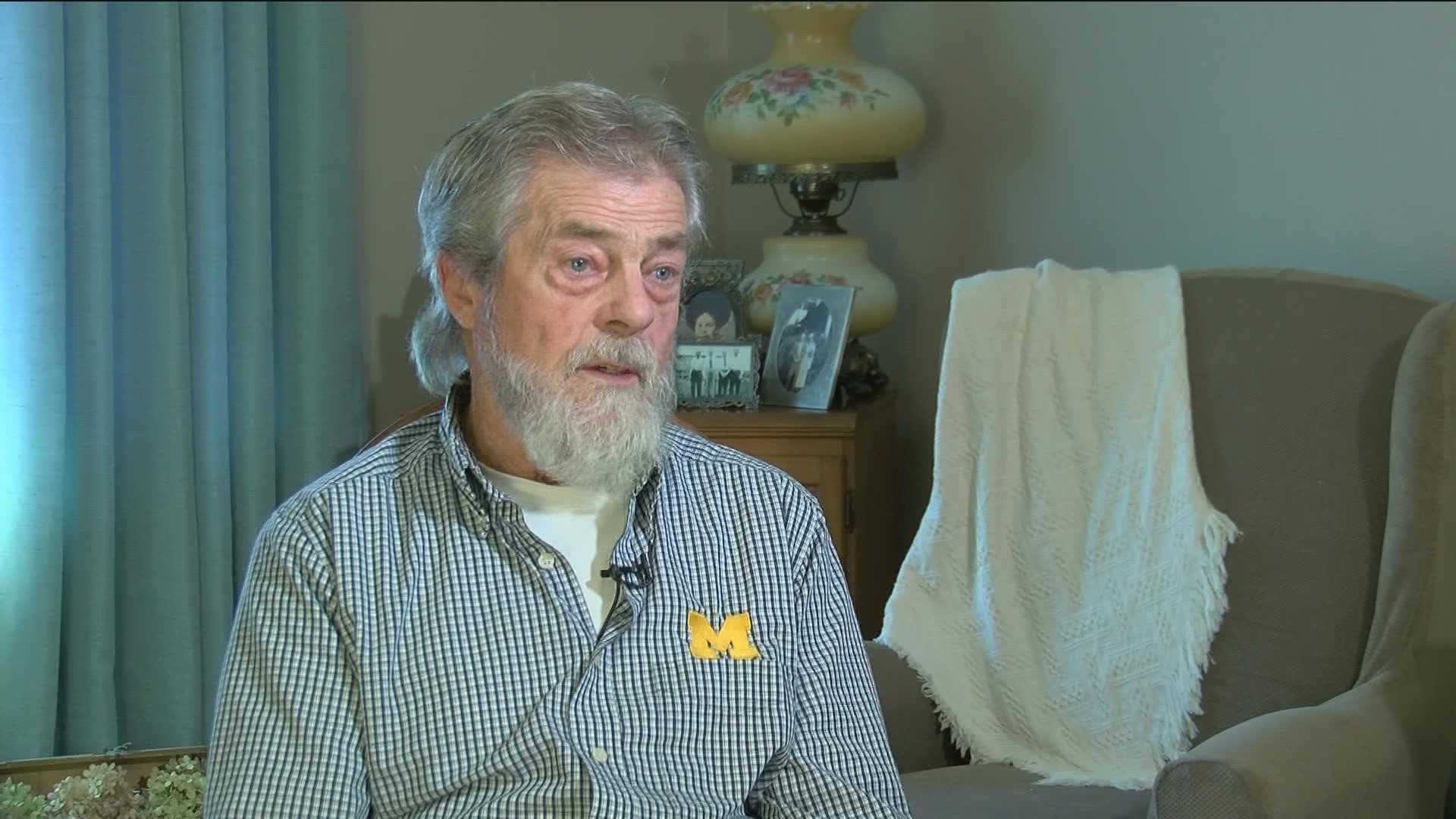TOLEDO, Ohio — Jim Bain enjoyed a cup of coffee with his wife of 48 years, Jackie, on a Monday afternoon. It's something simple, yet he doesn't take it for granted.
"I'm pretty lucky," Bain said.
Bain was first diagnosed with Crohn's Disease as a teenager, back in the late 1960s.
Without a ton of information or treatment options, Bain had a number of bowel resection surgeries to cut out the damaged portions of his bowel, created by inflammation.
"The only solution they had was to cut it and throw it away," he said.
In 2008, Bain's last resection left him with 25 percent of his small intestine and half of his colon.
He wasn't responding to medication, wasn't absorbing any nutrients and was diagnosed with short bowel syndrome. His doctor exhausted all options.
"He (the doctor) said, 'You know, I've done everything I can do for you.' He said, 'I think we need to turn you over to the transplant team,'" Bain said.
Bain got his new colon and small bowel at the Cleveland Clinic in 2016.
The Cleveland Clinic began regularly performing intestinal transplants around 2008. But one of Bain's doctors, Dr. Donald Kirby, says "regular" is a relative term.
"This (intestinal transplant) is a different animal," Kirby said. "This is the least-done transplant in the U.S."
Kirby heads the Intestinal Transplant Program at the Cleveland Clinic. He says the hospital system performed 15 small intestine transplants out of about 100 done nationwide in 2022.
In comparison, Kirby says that more than 200 liver, 300 kidney and 100 lung transplants were done at Cleveland Clinic during the same time period.
Dealing with the gastrointestinal tract is particularly tricky due to several factors, he says.
"All the blood vessels involved, we're talking small blood vessels. The anastomosis that are involved. These people have had clots and other nasty things," Kirby said. "It's a real tour de force what these surgeons are able to do."
But for patients like Bain, these procedures can be lifesaving and a game changer in terms of quality of life. For eight years prior to Bain's transplant, he was on something called parenteral nutrition. That means he had to hook up a line in his chest to infuse nutrients into his body, every day.
Kirby says many patients have to do this for 12 hours a day.
"It may be going 200 cc's an hour. Now, I don't know about your kidneys, but my kidneys would have me in the bathroom pretty fast and that's what happens to the patients," he said. "If they're infusing at night, they never get a really good night's sleep."
Shortly after Bain recovered from this transplant surgery, he was off parenteral nutrition.
"If you can transplant them (intestines) and it goes well, 80 percent of the patients being transplanted are off parenteral nutrition within the first year, which is terrific. They're able to eat again," Kirby said.
Which was also the case for Bain. "I can eat anything," he said. "It's just I have to be careful, watch what I'm doing. It's been a bumpy ride, but I'm still here."
Bain says he did well for a while, but his body rejected the colon about a year and a half ago. That meant needing a stoma and colostomy bag. He has had some other complications he and his doctor are working on alternative treatments for. Within the past few months, he's gone back on parenteral nutrition.
Through the setbacks, Bain says the transplant allowed him some good years; time to do things that wouldn't otherwise be possible.
"Whatever you can give me. I'll take," Bain said. "I got so many things I want to do. I've got seven grandchildren and I wanted to be healthy as much as I could."
Bain says he's grateful for the staff at the Cleveland Clinic and for the compassionate care they have provided. He says he's lucky to be alive at a time when something can be done to give him more time to do the things he loves.
Bain also wants people to act on any recurring gastrointestinal symptoms. While inflammatory bowel disease may not always be an easy topic to talk about, he says you shouldn't be embarrassed to get medical care and find support.
Lastly, Kirby and Bain encourage everyone to consider organ donation. You never know the difference you might make.

